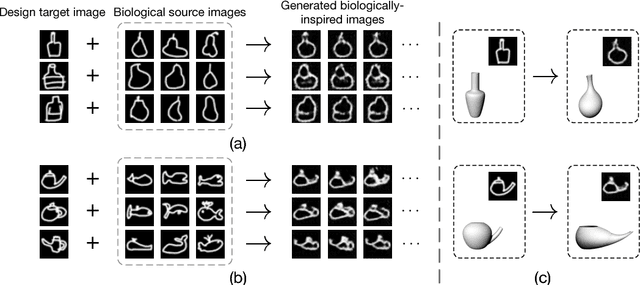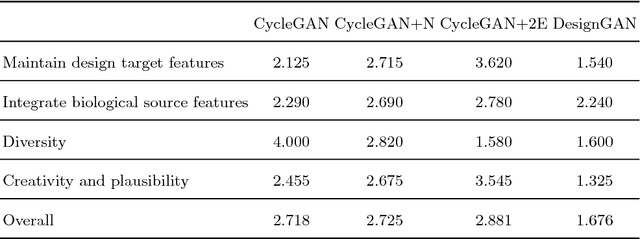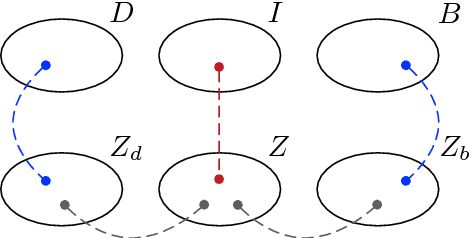Generative Creativity: Adversarial Learning for Bionic Design
Paper and Code
May 19, 2018



Bionic design refers to an approach of generative creativity in which a target object (e.g. a floor lamp) is designed to contain features of biological source objects (e.g. flowers), resulting in creative biologically-inspired design. In this work, we attempt to model the process of shape-oriented bionic design as follows: given an input image of a design target object, the model generates images that 1) maintain shape features of the input design target image, 2) contain shape features of images from the specified biological source domain, 3) are plausible and diverse. We propose DesignGAN, a novel unsupervised deep generative approach to realising bionic design. Specifically, we employ a conditional Generative Adversarial Networks architecture with several designated losses (an adversarial loss, a regression loss, a cycle loss and a latent loss) that respectively constrict our model to meet the corresponding aforementioned requirements of bionic design modelling. We perform qualitative and quantitative experiments to evaluate our method, and demonstrate that our proposed approach successfully generates creative images of bionic design.
 Add to Chrome
Add to Chrome Add to Firefox
Add to Firefox Add to Edge
Add to Edge